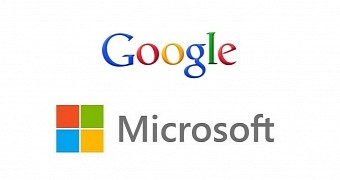Microsoft has scored an important victory against Google in the courtroom by winning an appeal court ruling that might end up lowering the rates that device manufacturers have to pay to license tech used in the production of smartphones and other personal computers like tablets.
The court upheld a $14-15 / €13-14 million jury verdict against Google, who was accused of demanding what Microsoft claimed amounted to billions of dollars paid for patents covering Wi-Fi and video downloads.
The decision will probably support claims from other tech giants in the industry like Apple, Intel and HP, who have been striving to lower the amount of money they pay for gaining access to essential technology.
The dispute dates back to 2010 when Motorola Inc. (a standalone company back then) asked Microsoft to pay royalties for the use of patents involved in Wi-Fi and video compression. Subsequently, Motorola requested a 2.25% cut of Xbox sales.
Microsoft didn’t like it one bit, accusing Motorola of asking for an exorbitant price which would amount to $4 / €3 billion a year. In the following lawsuit, Redmond alleged Motorola had breached its obligation to offer licenses for said patents at a reasonable cost.
Score: Microsoft 1, Google 0
Following a 2012 trial, a judge in Seattle lowered the $4 / €3 billion demand to a more “acceptable” $1.8 / €1.63 million a year. Another jury later found Motorola in breach of contract.
Backing Motorola are developers of essential technology in the wireless industry like Qualcomm, Ericsson and Nokia. They claim that licensing fees need to be high enough in order to allow them to atone the huge investments poured in to research and develop the technology in the first place. They also invest these funds in future developments.
When these inventions become part of a certain standard, the companies agree to license the underlying patents for a fair, non-discriminatory price. Google got its hands on the patents after it purchased Motorola Mobility in 2012. Since then, the handset business got sold to Lenovo, but the search giant continued to hang on to the patents.
Google had nothing to comment on the matter so far.

 14 DAY TRIAL //
14 DAY TRIAL //